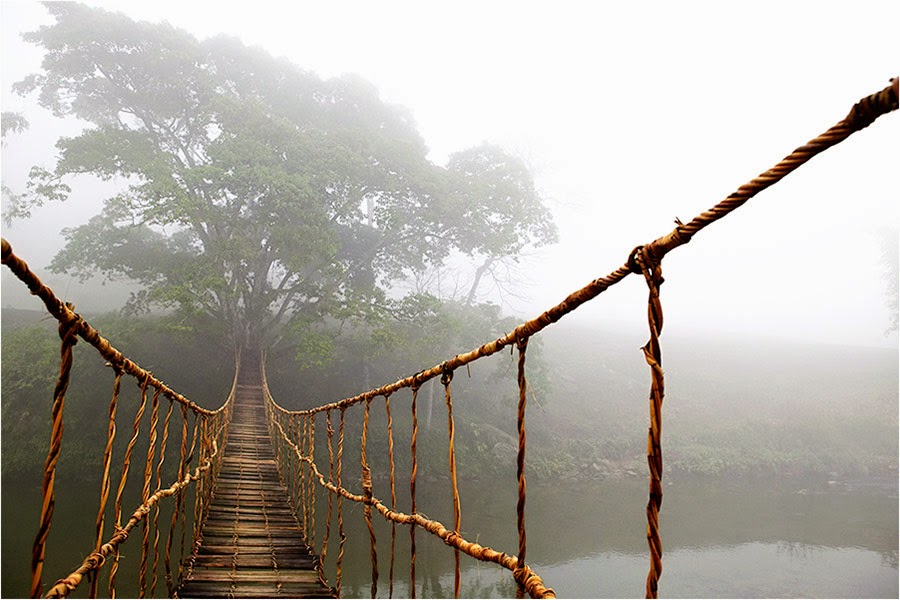You know the brick path in back of the house,
the one you see from the kitchen window,
the one that bends around the far end of the garden
where all the yellow primroses are?
And you know how if you leave the path
and walk up into the woods you come
to a heap of rocks, probably pushed
down during the horrors of the Ice Age,
and a grove of tall hemlocks, dark green now
against the light-brown fallen leaves?
And farther on, you know
the small footbridge with the broken railing
and if you go beyond that you arrive
at the bottom of that sheep’s head hill?
Well, if you start climbing, and you
might have to grab hold of a sapling
when the going gets steep,
you will eventually come to a long stone
ridge with a border of pine trees
which is as high as you can go
and a good enough place to stop.
The best time is late afternoon
when the sun strobes through
the columns of trees as you are hiking up,
and when you find an agreeable rock
to sit on, you will be able to see
the light pouring down into the woods
and breaking into the shapes and tones
of things and you will hear nothing
but a sprig of birdsong or the leafy
falling of a cone or nut through the trees,
and if this is your day you might even
spot a hare or feel the wing-beats of geese
driving overhead toward some destination.
But it is hard to speak of these things
how the voices of light enter the body
and begin to recite their stories
how the earth holds us painfully against
its breast made of humus and brambles
how we who will soon be gone regard
the entities that continue to return
greener than ever, spring water flowing
through a meadow and the shadows of clouds
passing over the hills and the ground
where we stand in the tremble of thought
taking the vast outside into ourselves.
Still, let me know before you set out.
Come knock on my door
and I will walk with you as far as the garden
with one hand on your shoulder.
I will even watch after you and not turn back
to the house until you disappear
into the crowd of maple and ash,
heading up toward the hill,
piercing the ground with your stick.

"Directions" by
Billy Collins. Text as published in
Sailing Alone Around the Room: New and Selected Poems (University of Pittsburgh Press, 1995).
Art credit: "Brick Path,"
photograph by
Tessa Shoup (digitally enhanced by curator).
 "Adrift" by William Stafford, from The Answers Are Inside the Mountain: Meditations on the Writing Life, edited by Paul Merchant and Vincent Wixon (University of Michigan Press, 2003).
"Adrift" by William Stafford, from The Answers Are Inside the Mountain: Meditations on the Writing Life, edited by Paul Merchant and Vincent Wixon (University of Michigan Press, 2003).















































